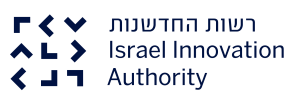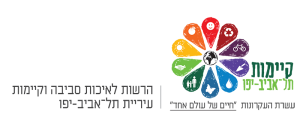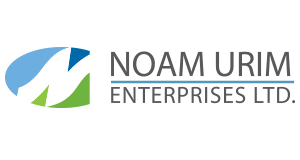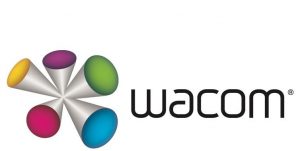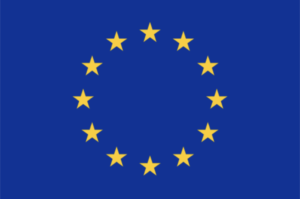
![]()
Project Name
FISHSkin
Description
Developing fish skin as a new sustainable raw material for the fashion industry, using wasteful mariculture bio-products from the food industry.
Led by CIRTex Shenkar, the research was conducted by a consortium of 10 organizations from 6 countries, who were invested to promote this sustainable and circular economy project. The consortium was formed and supported by the Horizon 2020 RISE (Research Innovation Staff Exchange) framework.
Research was conducted in the areas of: Fish leather processing protocol, Natural dying and tanning techniques, Adhesion techniques for fish skin, Sustainable coating and finishing, Software assembly simulation, Printing Design and 3D modeling, Material flow & LCA, Market analysis and acceptance strategies.
Consortium Partners:
Shenkar
University of the Arts London
Italian Institute of Technology (IIT)
Kyoto Seika University
Iceland University of the Arts
Nordic Fish Leather
Ars Tinctoria
Kornit Digital
Israel Oceanographic and Limnological Research (IOLR)
Via Talenta Group
Team
Ayelet Karmon, Sharon Murro, Ori Topaz, Anna Solo, Orit Freilich, Dr. Tal Goldarth, Dr. Maya Shmeilov, Gabriella Baruch.
Project Name
SNOW Smart Non Woven
Type of funding
Governmental
Description
SNOW is a conventional industry consortium founded with the support of the Israel Innovation Authority (formerly the Chief Scientist in the Ministry of Economy), and is part of MAGNET – Generic Industrial Research Program. The consortium began its multi-year activity in June 2017, with a mandate to develop generic technologies for the production of smart non-woven fabrics, which are sensitive to changes in environmental conditions. For example: liquefying fabrics, absorbing/releasing heat, pH neutralizing, containing and releasing active skin care components, possessing a uniquely soft texture or high absorbency, and so on. Products derived from these technologies are expected to target hygienic, cosmetic, medical, and technical markets.
Team
Dr. Elizabeth Amir, Dr. Nir Debotton, Dr. June Kopelowitz, Karin Gonen, Eleonora Buarkin
Projects
Fiber Reinforced Concrete, Future Soldier
Type of funding
Governmental
Description
Projects funded by the Israel Ministry of Defense Directorate of Defense Research and Development (DDR&D) at CIRTex:
(1) Fiber Reinforced Concrete – development of a composite material for infrastructure damage repair – Completed.
(2) Future Soldier – electronic sensor fabrics for the future soldier – Ongoing.
Team
Ori Topaz, Hedya Garmi, Dr. Zeev Weissman, Dr. Eyal Sheffer, Hadass Himmelschein, Liron Shemesh, Ofir Zmudjak, Amit El-Ad
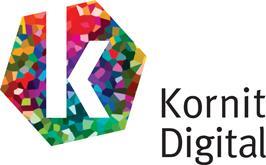
Project Name
FishSkin
Type of funding
EU commission H2020 RISE
Description
Kornit Digital develops, manufactures and markets industrial digital printing technologies for the garment, apparel and textile industries. FishSkin is a research consortium of organizations from seven different countries who believes in a sustainable and circular economy. The research aims to turn wasteful mariculture bi-products into raw material— fish skin leather. The project is in collaboration with Kornit Digital. For further information, visit the FishSkin website.
Team
Michal Golan, Atalya Attar, Ori Topaz, Orit Freilich

Type of funding
Commercial and governmental collaboration
Team
Ori Topaz, Hedya Garmi, Dr. Zeev Weissman
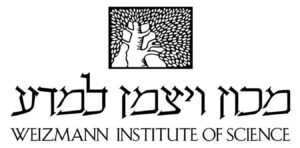
Type of funding
Academic and governmental collaboration
Team
Ori Topaz, Hedya Garmi, Dr. Eyal Sheffer
Project Name
Future Soldier
Type of funding
Governmental
Description
This collaborative project is funded under the Directorate of Defense Research and Development (DDR&D), Israel Ministry of Defense. The project involves the development of electronic sensors and heating elements based on fibers produced by Tortech Nanofibers for the future soldier. The fiber-based sensors are made from Ultra Long Carbon Nano Tubes (CNT).
Team
Ayelet Karmon, Dr. Eyal Sheffer, Ori Topaz, Hadass Himmelschein, Zohar Messeca-Fara, Amit El-Ad
Project Name
Material Flow Survey, pre-consumer textile waste in Tel Aviv-Yafo Municipality
Type of funding
Municipal
Description
The Environmental Authority of Tel Aviv-Yafo Municipality initiated a Material Flow Survey in order to better understand the scope and characteristics of textile waste coming from Tel Aviv-Yafo industrial activity, and to contribute towards a relevant Circular Economy Policy/Initiative.
Team
Emma Margarita Erenst, Ayelet Karmom, Tal Segre, Yarden Levy, Tal Fisher, Tamar Eisenberg, Nimrod Jack Eliezer. From Tel Aviv-Yafo Municipality: Mr. Eitan Ben-Ami – Head of the Environmental Authority, Naama Karmon – Circular Economy consultant.

Project Name
KNITIT: A Computational Tool for Design, Simulation, and Fabrication of Multiple Structured Knits
Type of funding
commercial collaboration, private
Description
The research focused on developing a computational parametric tool for digitally designing and industrially producing knitted fabrics, creating a direct link between design and manufacturing. The tool includes an integrated physical simulation component for estimating the fabric deformation. It allows users to visualize and control compensations in the fabric knitting structure, to better match between the initial graphic intent of the design and the actual physical knitted fabric outcome.
Team
Ayelet Karmon, Tom Shaked, Dr. Eyal Sheffer, Shoval Nir, Gabi Kertes.
From Nike: Digital Innovation Team Yoav Sterman
Project Name
Color Customization for interior textile products
Type of funding
Startup company, private
Description
Twine Solutions develops a technology called Digital Selective Treatment (DST™) which enables on-demand thread dyeing, reaching the highest industry standards with an eco-friendly process. Twine’s digitally dyed threads are dyed along the length of the thread in any color, allowing accurate color definition and gradual transformation between colors. The collaboration with CIRTex is focused around a user-centered application for interior design. The application automatically generates a range of color propositions for fabric patterns, in relation to an existing and specific spatial context. The work included the design of a small collection of physical samples which were dyed at Twine, and weaved in Shenkar.
Team
Emma Erenst, Dana Palmon, Ayelet Karmon, Julia Barashkova
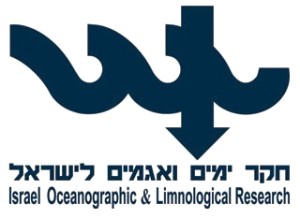
Project Name
Biodegradable food packaging
Type of funding
Innovation Authority
Description
Solutions to replace the usage of plastic containers and wrappers are constantly searched for, with emphasis on using natural ingredients, sustainable processes, and substantial waste recycling.
In this research we worked on developing a new type of food packaging, that is based on fish skin gelatin and algae extracts derived from natural, renewable, and sustainable sources.
Combining fish skin gelatin and algae to create a new generation of food packaging comprised of completely edible and eco-friendly materials that will generate a much faster degradability in comparison with most known packaging materials.
Team
Dr. Elizabeth Amir, Dr. Eitan Salomon, Dr. Shay Tal, Ori Topaz

